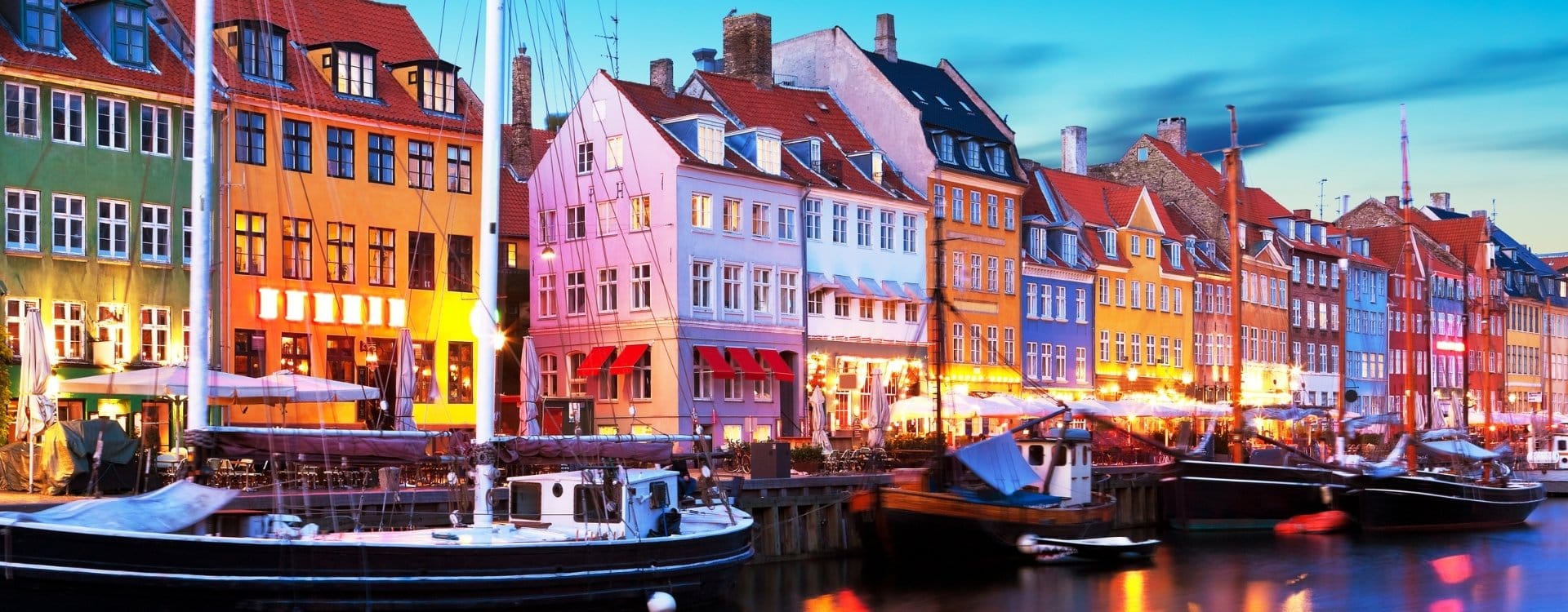Living and working in Copenhagen
Copenhagen, the capital of Denmark, is renowned for its high quality of life, innovative culture, and picturesque landscapes. As one of Europe’s most livable cities, it offers a unique blend of history, modernity, and sustainability, making it a magnet for expats seeking professional growth and personal fulfillment. This comprehensive guide explores everything you need to know about living and working in Copenhagen, from job opportunities to the cost of living, ensuring you’re well-prepared to thrive in this dynamic Scandinavian city.
Latest jobs
- Hotel jobs, Tourism
- Cyprus, Greece, Spain
- Customer support
- Portugal
- Adventure jobs, Hotel jobs, Tourism
- Bulgaria, Croatia, Egypt, Greece, Italy, Spain, Turkey
- Customer support
- Malta
- Customer support, Marketing
- Portugal
Working in Copenhagen
Working Conditions in Copenhagen
Copenhagen is a city where professionalism meets work-life balance. The standard workweek is 37 hours, usually spread across Monday to Friday, with flexible hours increasingly common. Employees enjoy a minimum of five weeks of paid annual leave, in addition to public holidays, which reflects Denmark’s commitment to ensuring a balanced and fulfilling life. Danish labor laws are among the most employee-friendly in the world, providing robust protections for workers, including parental leave and sick leave. English is widely spoken in many workplaces, especially in multinational companies, making it easier for expats to integrate.
Job Opportunities in Copenhagen
Copenhagen offers diverse job opportunities across a range of industries. The tech sector is particularly strong, with the city often referred to as the Silicon Valley of Europe. Startups and established companies alike are frequently hiring for roles in software development, AI, and data analysis. The renewable energy sector is also thriving, with Denmark leading the way in wind energy innovation. Healthcare professionals, particularly nurses and doctors, are in high demand due to Denmark’s well-developed healthcare system. The creative industries, including design, architecture, and advertising, also play a significant role in Copenhagen’s economy. For those interested in academia, Copenhagen’s universities and research institutions offer opportunities for teaching and research positions. Seasonal jobs in tourism and hospitality, especially in the summer months, are plentiful for expats who speak English or other languages. Networking is crucial for finding job opportunities, and platforms like LinkedIn, as well as local networking events, are invaluable resources.
Salaries in Copenhagen
Copenhagen offers competitive salaries that align with its high living standards. The average monthly gross salary is around €4,500, though it varies significantly by industry. IT and tech professionals can expect to earn between €5,000 and €7,500 per month, while healthcare workers earn between €4,000 and €6,000. Creative professionals in design and media earn €3,500 to €5,500, while roles in tourism and hospitality typically pay €2,000 to €3,500. Although taxes are high, ranging from 37% to 52%, the generous welfare benefits, including free healthcare and education, compensate for the deductions.
Income Tax in Copenhagen
Denmark’s progressive income tax system funds its world-class public services, including healthcare and education. The average effective tax rate is between 37% and 42% for most professionals, with higher earners taxed up to 52%. Expats may benefit from Denmark’s special tax scheme for researchers and highly skilled professionals, which offers a flat tax rate of 27% for up to seven years. Consulting a tax advisor is recommended to navigate the Danish tax system effectively.
Working Culture in Copenhagen
The working culture in Copenhagen emphasizes equality, collaboration, and flexibility. Flat hierarchies are common, and employees are encouraged to voice their opinions and contribute ideas. Punctuality is highly valued, and meetings are usually concise and efficient. Work-life balance is a cornerstone of Danish culture, with most employees leaving the office by 4 or 5 PM. Socializing with colleagues is encouraged, often through after-work drinks or team-building activities. Expats will find the working environment welcoming and inclusive, provided they adapt to the Danish emphasis on teamwork and shared responsibilities.

Living in Copenhagen
Benefits of Living and Working in Copenhagen
Living in Copenhagen means enjoying a city designed for quality of life. The city is clean, safe, and well-organized, with excellent public services and infrastructure. Copenhagen consistently ranks as one of the happiest cities in the world, thanks to its focus on sustainability, community, and well-being. The extensive cycling infrastructure makes commuting easy and enjoyable, while the city’s rich cultural scene ensures there’s always something to do. Expats will appreciate the welcoming atmosphere and the opportunity to be part of a progressive and innovative society.
Accommodation in Copenhagen
Finding housing in Copenhagen can be challenging due to high demand, but a variety of options are available for different budgets. A one-bedroom apartment in the city center costs between €1,500 and €2,500 per month, while apartments in suburban areas like Amager or Østerbro range from €1,000 to €1,800. Shared housing is a popular and affordable option, with costs between €500 and €1,000 per person. Websites like BoligPortal and DBA.dk are great resources for finding rentals, but be prepared to act quickly as properties are often rented out within days.
Cost of Living in Copenhagen
Copenhagen’s cost of living is high, but it reflects the city’s excellent services and infrastructure. Monthly expenses for a single person typically range from €2,500 to €4,000, including rent. Groceries cost around €300 to €500 per month, while dining out at mid-range restaurants costs between €20 and €50 per meal. Public transport is efficient and affordable, with monthly passes costing approximately €70. Utilities, including electricity, heating, and water, average €150 to €250 per month.
Public Transport in Copenhagen
Copenhagen’s public transport system is efficient, reliable, and environmentally friendly, consisting of buses, trains, and the metro. The metro operates 24/7, making it convenient for late-night travel. Cycling is the most popular mode of transport, with over 390 kilometers of dedicated bike lanes. Monthly public transport passes cost around €70, providing unlimited travel across the city.
Eating in Copenhagen
Copenhagen’s food scene is diverse and innovative, blending traditional Danish cuisine with international influences. Must-try dishes include smørrebrød, open-faced sandwiches topped with fish or meat, and frikadeller, Danish meatballs. The city is home to numerous Michelin-starred restaurants, including the world-famous Noma, but there are also plenty of affordable options, such as street food markets like Reffen. Farmers’ markets are popular for fresh, organic produce, and supermarkets like Netto and Irma cater to everyday grocery needs.
Places to Go Running or Working Out
Copenhagen’s outdoor spaces make it easy to stay active. The Lakes offer scenic running routes in the heart of the city, while Fælledparken provides wide-open spaces for jogging, yoga, or team sports. Amager Strandpark is perfect for beach runs and water sports, while fitness enthusiasts can join gyms like Fitness World or SATS, which are widely available throughout the city.
What to Do on Weekends
Weekends in Copenhagen are an opportunity to explore the city’s cultural and recreational offerings. Visit iconic landmarks like the Little Mermaid, Rosenborg Castle, or Tivoli Gardens, which is especially magical during the holiday season. Take a stroll through Nyhavn’s colorful waterfront or explore the trendy neighborhoods of Vesterbro and Nørrebro, known for their cafes, bars, and boutiques. For outdoor enthusiasts, day trips to Dyrehaven or the beaches of North Zealand offer a refreshing escape. Copenhagen’s vibrant nightlife, from jazz clubs to cocktail bars, ensures your evenings are equally exciting.
Weather in Copenhagen
Copenhagen experiences a temperate maritime climate, with mild summers averaging 17°C to 22°C and cold winters ranging from -2°C to 4°C. The city sees frequent rain, so a good raincoat is essential. Despite the cooler climate, the city’s hygge lifestyle ensures warmth and coziness year-round.








